Writers and activists including Emma Thompson, Margaret Atwood and Amitav Ghosh are to speak about their favourite endangered animals as part of a remembrance day for lost species.
The snow leopard, pangolin and vaquita porpoise are among the endangered animals that will be championed by participants at the free online event, On the Brink, organised by Writers Rebel, which is part of Extinction Rebellion.
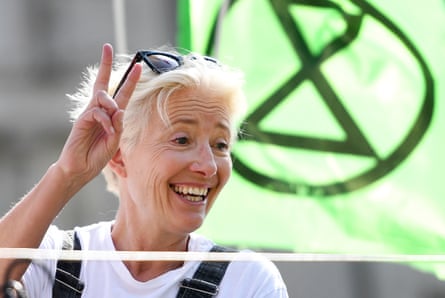
“A good way of coping with the grief of losing so many species from our planet is to celebrate the ones we have left and make sure they survive,” said Thompson, who will speak about puffins.
As a child she was a member of the Puffin Club and thought at first that puffins were books, not birds. Decades later, while on a trip to the Arctic with Greenpeace, the gently comical sight of a flying puffin, which is listed as vulnerable on the IUCN red list, was a respite from the grief and trauma of watching glaciers disappear. “There always seems to be a think bubble above their heads as they’re flying, which is ‘I’m not sure how long I’m going to be able to keep this up!’ because their wings go so fast,” she told the Guardian.
Q&AWhy should we worry about wildlife extinction?Show
The sixth mass extinction in geological history has not only begun but is accelerating, according to some scientists, who warn that it may be a tipping point for the collapse of civilisation.
A report in June 2020 found more than 500 species of land animals were found to be on the brink of extinction and likely to be lost within 20 years. In comparison, the same number were lost over the whole of the last century.
The land vertebrates on the verge of extinction, with fewer than 1,000 individuals left, include the Sumatran rhino, the Clarion wren, the Espanola giant tortoise and the harlequin frog.
The analysis, published in the journal Proceedings of the National Academy of Sciences, examined data on 29,400 land vertebrate species compiled by the IUCN red list of threatened species and BirdLife International. The researchers identified 515 species with populations below 1,000 and about half of these had fewer than 250 remaining. Most of these mammals, birds, reptiles and amphibians were found in tropical and subtropical regions.
Changes to the climate are reversible, even if that takes centuries or millennia, and conservation efforts can work. Since 1993, up to 48 bird and mammal extinctions have been prevented by conservation efforts. But once species become extinct, there is no going back.
Thompson hopes the event helps people to realise their deep links with other living things. “That innate connection is what will save us, and to speak of it poetically or amusingly or artistically in any way is merely to remind people of what they already know,” she said. “It’s just adding another voice to the great chorus that is rising from everywhere at the moment, voices saying we can’t go on destroying our landscape, our planet, the great numbers of other organisms or species with whom we share the planet.”
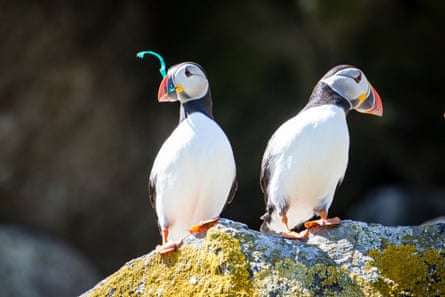
As a child, Thompson was a junior member of Greenpeace and Friends of the Earth. When she was filming In the Name of the Father in 1991, people started talking about bottled water and how stupid it was. “Two decades later we’re going … ‘this is ridiculous – we’ve got more plastic in the oceans than fish?’ If something could go badly wrong in 30 years, it can also go seriously right in the next 10,” she said.
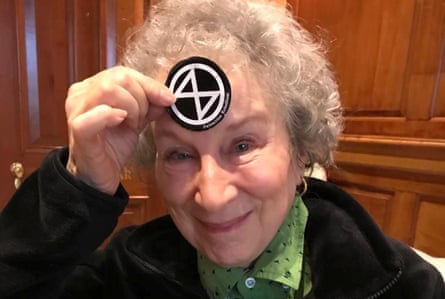
From Toronto, Atwood will be speaking about the endangered Tasmanian devil, a dog-like marsupial whose ferocity reminds her of climate activist Greta Thunberg. “I chose this creature because I have seen it in its habitat, I’ve followed its footprints across a beach in Tasmania, and I have watched it move through several threats and partial recoveries,” she told the Guardian.
For Atwood the penny dropped about climate issues in the 50s. Humanity had dodged a number of bullets – ozone depletion, acid rain, DDT pesticides, atomic bombs – and scientists who spotted early signs of global heating were mainly ignored. Now people are listening, she said, as shown by the rise of Extinction Rebellion. “What we have to think about … is do we want to be a species? Are we already a threatened species? Are we investing in our own extinction? That is the question … If no action is taken, we’re going to go over the cliff. It’s just a matter of time.”
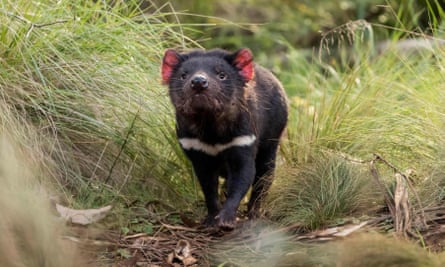
Having lived through several periods of protest over the years, Atwood says this is the first time the protests have been about the climate, which is forcing politicians to face up to the problem. “There’s no point not having some hope. Because if you have no hope you do nothing,” she said.
Ghosh became interested in Irrawaddy dolphins in 2000 when he was travelling by boat through a mangrove forest in Bengal and saw a dead one washed up on the mud bank. Years later he got in contact with a researcher from New Zealand and spent a week surveying the dolphins in the Mekong River where there are an estimated 92 of them left. He wrote a book called The Hungry Tide whose central character is a scientist interested in these beakless dolphins, which have bulging foreheads and look like they’re smiling.
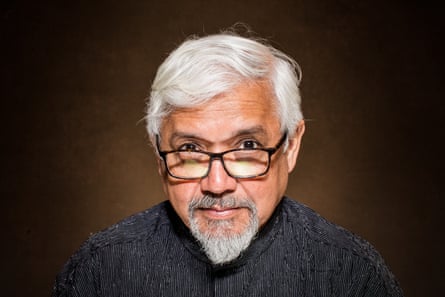
An estimated million species are at risk of extinction and Ghosh hopes the remembrance day will highlight the horror of watching entire populations of creatures vanishing before our eyes. “All this stuff has just become naturalised – we become immune to the horror that’s unfolding around us,” he said. “And I think it’s very important and very necessary to constantly reiterate that this isn’t normal.”
At this point, our choices are between terrible and catastrophic because we’ve already crossed too many planetary boundaries, he said. “We are heading towards catastrophic. So yes, we could turn it round to some degree so that we remain within some boundaries, that is still terrible, but are better than catastrophic. That’s the thing that we have to hope for at this point.”
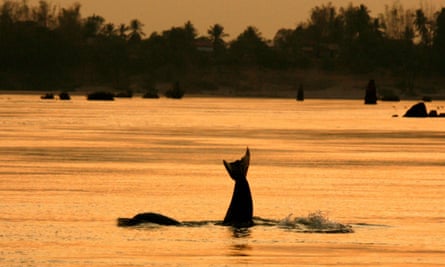
Lily Cole, Bianca Jagger, Homero Aridjis and Ben Okri will also speak at the event, which will be co-hosted by Mya-Rose Craig, also known as Birdgirl, and David Lindo, the Urban Birder. The aim is to galvanise support and inspire people to become champions of ecosystems at risk of collapse, says co-organiser Liz Jensen. “We hope this will be our biggest and best event yet.”
On the Brink will take place on Monday 30 November at 7pm and will be streamed on Zoom and Facebook Live.
Find more age of extinction coverage here, and follow biodiversity reporters Phoebe Weston and Patrick Greenfield on Twitter for all the latest news and features